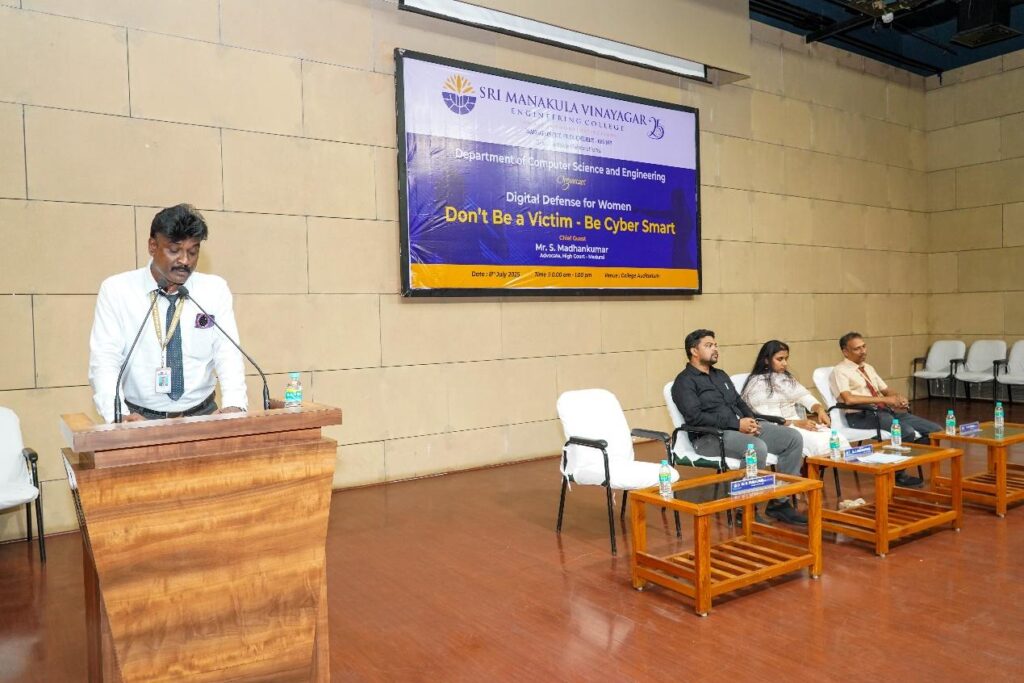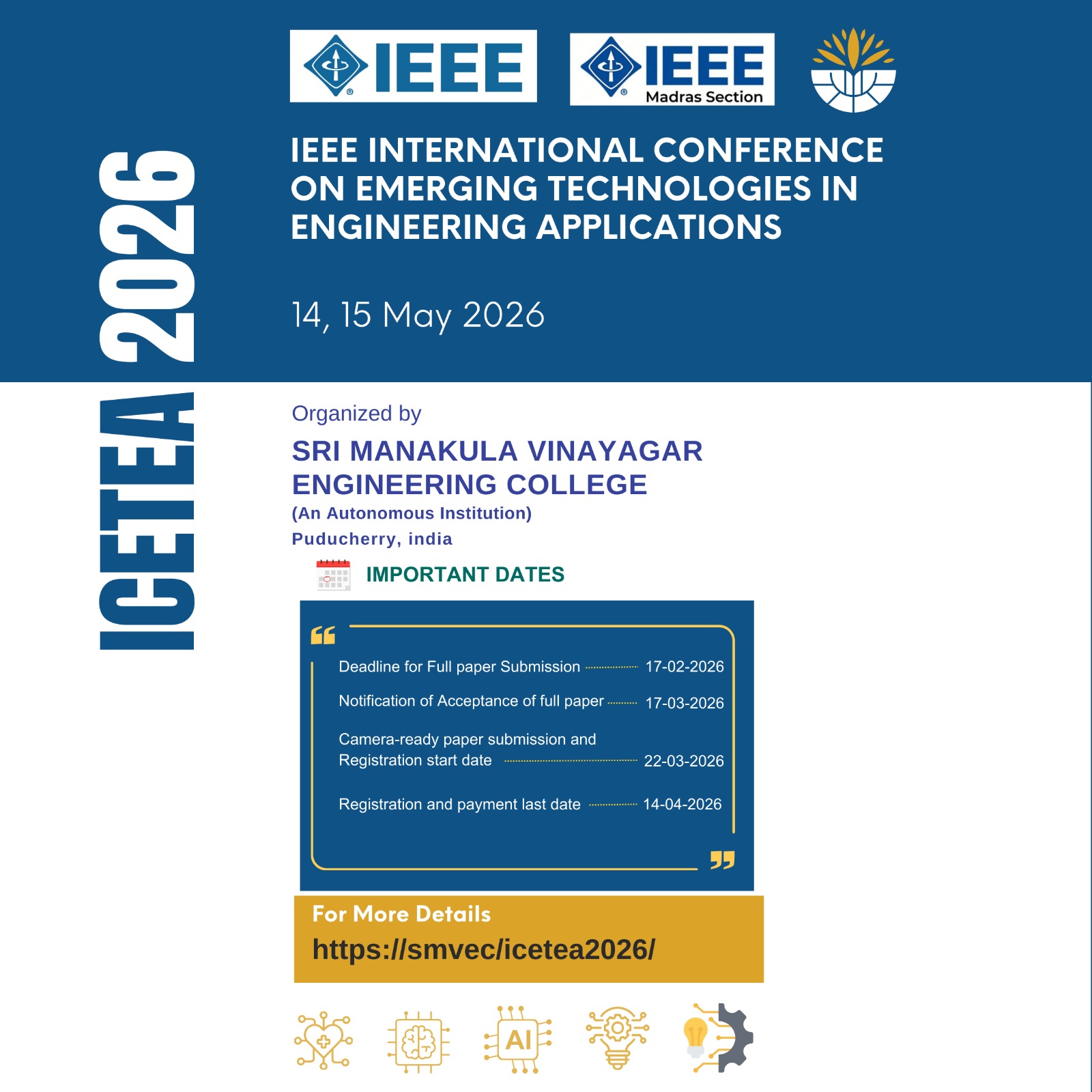A Radiant Beginning: The Lamp Lighting Ceremony
The event “Digital Defense for Women – Don’t Be a Victim, Be Cyber Smart”, held at Sri Manakula Vinayagar Engineering College (SMVEC), commenced with a deeply symbolic and traditional lamp lighting ceremony, marking the beginning of an inspiring and enlightening day.
Honoring of the Chief Guest
Following the lamp lighting, the Chief Guest was warmly welcomed and honored in a gesture of respect and gratitude. A token of appreciation—such as a memento, shawl, or bouquet—was presented as a mark of recognition for their presence and contribution. The Chief Guest’s achievements and role in their respective field were briefly introduced, inspiring the audience and setting the context for the session ahead.
In an era where digital presence is almost inseparable from everyday life, the Department of Computer Science and Engineering at SMVEC took a powerful initiative to address one of the most critical challenges of the digital age: cyber safety for women. The event titled “Digital Defense for Women – Don’t Be a Victim, Be Cyber Smart” was successfully held on July 8, 2025, on the college campus.
The event aimed to create awareness, build confidence, and equip women with the necessary tools and knowledge to protect themselves in the digital world. From cyberbullying to identity theft and online stalking, the growing concerns around cybercrimes have made it imperative for individuals—especially women—to stay informed and vigilant.
Event Highlights
Interactive Awareness Session Overview
The session was designed to educate participants on essential aspects of online safety and digital literacy. Through engaging discussions, real-life examples, and interactive activities, the session covered a range of critical topics aimed at fostering safer and more responsible online behavior. Key areas of focus included:
- Safe Social Media Usage: Attendees learned about best practices for protecting their privacy on platforms such as Facebook, Instagram, and X (formerly Twitter). The discussion emphasized setting strong passwords, adjusting privacy settings, and being cautious about the personal information shared online.
- Identifying Online Threats: The session highlighted the various forms of cyber threats that users may encounter, such as malware, spyware, and ransomware. Participants were guided on how to recognize suspicious activity, avoid unsafe downloads, and understand the risks associated with unsecured Wi-Fi networks.
- Recognizing Phishing Scams and Fake Profiles: A significant portion of the session was dedicated to helping individuals distinguish between legitimate and fraudulent communications. Through real-world examples, participants learned how to spot phishing emails, text messages, and fake social media profiles that attempt to deceive users into revealing sensitive information like passwords, credit card numbers, or personal data.
- Live Demonstrations: Technical faculty and student volunteers showcased how cyberattacks happen and how one can avoid them using basic cyber hygiene practices.
Q&A with the Expert:
Mr. Madhankumar addressed questions from students and faculty members, providing clarity on laws related to online harassment, digital evidence, and filing FIRs for cybercrimes.
- Case Study Discussions: Participants explored real-life cybercrime cases that underlined the psychological and legal impact of digital violations.
- Digital Literacy Booths: Informative stalls provided brochures, cybersecurity toolkits, and tutorials on setting strong passwords, enabling two-factor authentication, and securing personal data.
Women’s Safety in the Digital Age
The event was not just about threats—it was about empowerment. Participants left with a renewed sense of confidence and knowledge, realizing that they are not helpless in the face of cyber threats. Awareness, preparedness, and smart digital behavior can be their first line of defense.
The Department of CSE at SMVEC deserves high praise for organizing such a meaningful and timely event. By bringing in legal expertise, technical insights, and creating a safe platform for open discussion, the college has taken a vital step toward fostering a safer digital environment for women.
Moving Forward
The success of this program has inspired plans for further initiatives, including workshops, certification courses in cybersecurity, and outreach programs for rural and underrepresented communities. SMVEC continues to prove its commitment not just to academic excellence but to social responsibility and women’s empowerment.




